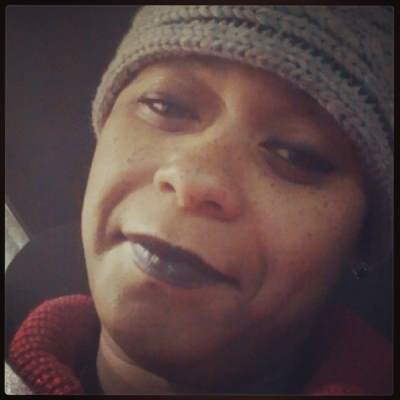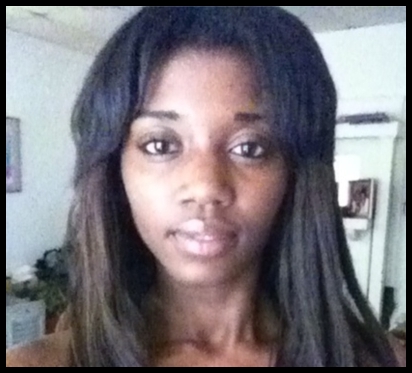Following Ismaaiyl Brinsley’s shooting of two cops in Brooklyn, the statements of every public figure from Mayor de Blasio to Al Sharpton had something in common besides their call to support the police:[1] they failed to even mention that Brinsley’s shooting spree began when he shot his ex-girlfriend, Shaneka Nicole Thompson, in Baltimore.
This common disregard for Thompson is not due to the fact that she survived the attack. Nor is it only a result of the establishment’s vile effort to blame the protest movement for Brinsley’s actions. It is also an example of the downplaying of the role of women. The capitalist society we live in, founded on slavery and racism, also perpetuates women’s oppression. For all of us who are dedicated to a fight against racism, it is necessary to take on the fight against all other forms of oppression, especially when two forms of oppression combine. The movement that has rightly rallied around the slogan Black Lives Matter! should now take up the slogan Black Women’s Lives Matter!
Brinsley’s reported stalking and then shooting of Thompson is an example of the terror and violence suffered by millions of women in this country: domestic violence by men culminates in the murder of three women each day on average. And while racist ideologues attempt to portray Black men as particularly violent, rates of domestic violence are actually the same among Blacks and whites.[2]
Racism and sexism are essential tools in the ruling capitalist class’s strategy to divide and conquer the whole working class. Racists falsely stereotype Black men as the threatening face of crime and violence in order to win support for tough-on-crime policing, draconian sentencing and the expansion of prisons. Similarly, racists falsely stereotype many Black women as socially irresponsible for supposedly having too many children and then seeking government aid for their family. In reality, the rate at which Black women have been having children has been falling sharply for decades without any corresponding rise in wealth or social stability.[3]
A recent example of combining racist and women-hating stereotypes took place on the Fox TV program of reactionary loudmouth Bill O’Reilly when he had Martin Luther King III as his guest. O’Reilly sought to minimalize the significance of racist police brutality by promoting the myth that “the primary issue holding back Blacks in America” is their “chaotic families,” with Black women being responsible for this state of affairs by having children out of wedlock at a young age. Responding to the T-shirts saying “I Can’t Breathe,” O’Reilly declared that Black people should be wearing T-shirts saying, among other things, “Don’t Get Pregnant at 14.” Shamefully, when King was given the chance to disagree, he refused to do so.
“Black Women are Killed by Police, Too”
A special fear of Black men has always been central to white racism. Hence the cops’ frequent reaction to the mere existence of Black men on the streets as an imminent threat to their lives. But Black women, and women of color more generally, don’t escape the cops’ brutality and murder. On the contrary, police kill Black women with terrible regularity, even if less frequently. They expect to get away with these crimes just as they do with killing Black men, and too often with much less public awareness.
Among the many recent examples of police killing Black people, one case that has gained only minimal attention is that of 40-year old Aura Rosser, a mother of 3, killed by a cop in Ann Arbor, Michigan, on November 9. Responding to a call from a concerned neighbor hearing an argument, police arrived at Rosser’s boyfriend’s home and found her inside holding a small knife – and immediately shot her dead. Protests demanding justice for Rosser and the firing of the cop who shot her continue.[4]
There is also the case of 18-year old Sheneque Proctor, who died while in custody at the Bessemer County Jail in Alabama on November 2. After being arrested for allegedly “disorderly conduct” at a party, her family says that she complained of being treated violently by the police. In prison, she reportedly appealed for help after suffering asthma symptoms. She was ignored and found dead in her cell the next morning. Proctor’s supporters, who are referring to her as “the female Eric Garner,” are circulating a petition demanding answers regarding her death. (The web address for this petition can be found in the notes at the end of this article.)[5]
On January 5, 2008, 26-year old Tarika Wilson was holding her baby when police raided her home in Lima, Ohio, looking for a man they alleged was a drug dealer. A cop opened fire, killing Tarika and injuring her baby, yet the cop who shot them was cleared of criminal charges and has returned to work for the police force. The city even officially declared that the officer “acted appropriately.” To add insult to injury, a Citizens Review Board to investigate complaints of police misconduct, created as a supposed concession to protests following her killing, has been as effective in challenging police injustice as many other such boards. Today, four years after its creation, it has not taken on a single case. [6]
In Detroit, on May 16, 2010, 7-year old Aiyana Stanley was shot dead as she slept when police raided her family’s apartment in search of a killer; they later admitted that they had entered the wrong apartment. Three years after, and a month before Michael Brown’s killer was allowed to walk free, a Detroit judge dropped the charge of involuntary manslaughter against the cop who killed her.[7]
Activist women of color have been stepping up to publicize more cases. For example, Kirsten West Savali’s article “Black Women Are Killed by Police, Too,” first published by Dame magazine http://www.damemagazine.com and later republished at Salon.com, is particularly strong and deserves to be widely read.[8]
The Leading Role of Women of Color in the Struggle
Today’s struggles are already showing how the oppression and devaluation of women can be challenged. We note with pride that many of the movement’s most prominent leading figures have been young Black women. Thus it was young Black women activists who coined the movement’s principal slogan, “Black Lives Matter,” after Trayvon Martin was killed by the vigilante George Zimmerman in Florida. This group has continued to organize against racist policing ever since, as well as to write and speak about the role that Black women, gay and straight, have been playing in the movement and the importance of challenging sexism and anti-gay oppression.[9]
In Ferguson, Missouri, young Black women played a key role in the courageous protests that refused to be crushed by the military occupation of their neighborhoods by the police and National Guard.[10] Some of these same women traveled to Washington, DC to attend Al Sharpton’s December 13 protest, boldly storming the stage and grabbing the microphone so that voices of the protest movement, not just the treacherous political establishment, could be heard. “We kept being dismissed,” explained Erika Totten, “so I said, ‘Stand behind me and follow me. We’re gonna shut it down, like we always do.’ ” [11]
As we wrote in our leaflet for the December 13 nationwide day of protest against racist police injustice:
Today’s protests are a mighty rebellion, not only against the worsening injustices suffered by people of color, but also against all the politicians, community and labor “leaders” who claim to represent oppressed people and the broader working class – but who have done nothing to organize a real fightback against years of assaults on their rights and living standards. The working-class Black and Latino youth who have pushed this movement forward have been acting in place of this bankrupt leadership.
In the long history of struggles of the oppressed and exploited, there are many examples of women playing leading roles as intellectuals and militants. And if the exploited and oppressed masses are to succeed in building an effective united defense against the racist capitalist system that lies behind police injustice and other ills, they must develop a leadership that stands against all forms of oppression. In our view, that leadership must absorb all the key lessons of the past struggles of the working class and oppressed and recognize the need for the complete overthrow of the existing social order. That need is generally most strongly felt by politically advanced people from among those who are the most oppressed. Hence, in building a revolutionary political party leadership, women, and women of color in particular, must play a prominent part.
Among the women of color currently playing leading roles in the movement, some are from poor and working-class circumstances. Others are from better-off backgrounds and have had the confidence-building experience of a college education; some have salaried positions in non-governmental organizations (NGOs). We believe that a revolutionary party has to be built by and for working class and oppressed people above all. While individual middle-class people are capable of aligning with the working class and poor, of adopting revolutionary views and even of becoming important leaders, all too often they are quicker to believe that the system would be livable if it were just reformed. This reformist ideology reflects the more comfortable circumstances that they enjoy.
As the struggle continues and grows, and in particular as the working-class and poor masses become more organized and empowered, all the leading individuals and groups will be tested; the viewpoints and political programs of different political organizations will be evaluated across the board. We expect that in the course of the struggle, more and more people will come to see the need for a revolutionary working-class political party guided by the Marxist theory. Only revolutionary Marxism explains how racism and sexism is rooted in the system of capitalist exploitation, and only with that understanding can a revolutionary party leadership develop that can lead the overthrow of the system through socialist revolution.
Notes


